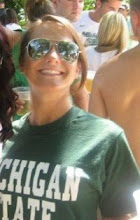Thanks to the pile of educational textbooks I have stockpiled over my years at Michigan State University, I have a range of texts to reference in my search for a twenty first century definition of literacy. According to the book Primary Literacy Standards for Kindergarten through Third Grade (1999), the main concern of literacy is reading and writing (New Standards, Primary Literacy Committee 1999). According to Pauline Gibbons, the author of Teaching Second Language Learners in the Mainstream Classroom (2002), the primary emphasis of literacy education should be focused on reading and writing. While I do agree with the previous two texts, to some extent, I want to take their ideas further.
When considering literacy and literacy education, it is important to consider the world in which our students live in. In order to succeed in the world outside of the classroom, students need to be literate in ways that far exceed reading classic text, and writing with pen/pencil and paper. Children need to be capable of mastering multi-media resources; meaning, students need to learn how to use media (for example, the Web 2.0) as a means to create, communicate, and collaborate. Another aspect of literacy that extends beyond reading and writing is the social aspect. It is important that children be able to share their thoughts and ideas. It is important that children know how to appropriately relate and interact with others.
How about this metaphor…I would like to refer to the concept of literacy as a tree. The trunk of the tree consists of the basic concept of reading and writing. Why? Because, I believe, reading and writing is the fundamental undercurrent to nearly every aspect of our lives. The branches of the tree could be the different aspects of literacy; including, but not limited to: social, cultural, environmental, and media. One could go even further and refer to the tree’s leaves as the different techniques and/or mediums a teacher may use to teach his/her students. When considering some examples that could be considered adequate leaves, I would propose blogging, drawing, cell phones, podcasts, digital storytelling, modeling and scaffolding (techniques), recycling (environmental aspects), etc..
It is easy to think of literacy as a rigid, unchanging concept, but it is not. As society and children evolve, so, too, will the definition of literacy. There will always be a wealth of information to consider when presented with the challenge of preparing children to become literate members of society.
Here is an image of a wordle document I created last week to represent a literacy concept map. One week ago, this image represents my views on literacy. It is interesting to see just how much my views on literacy have changed over one week's time.








No comments:
Post a Comment